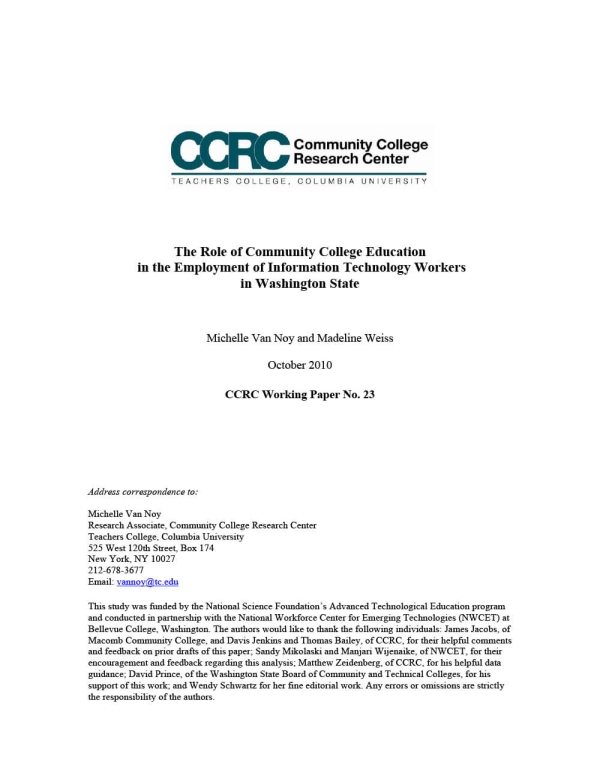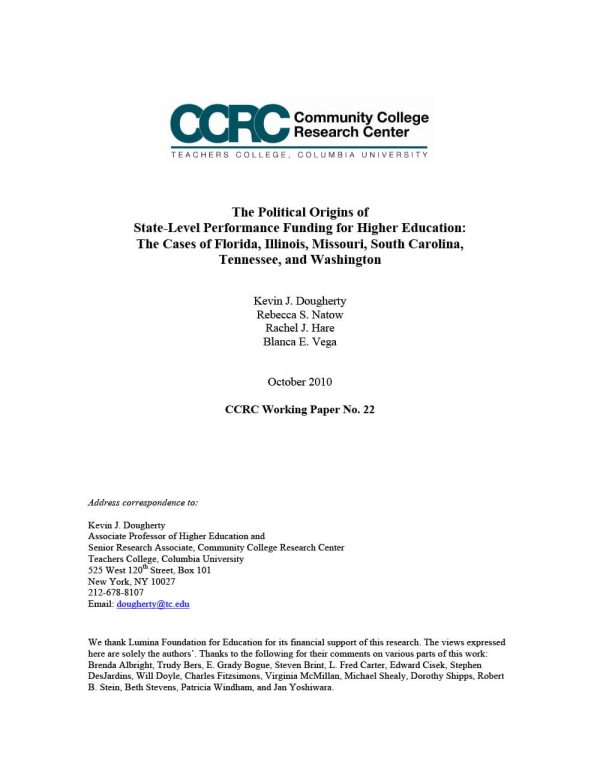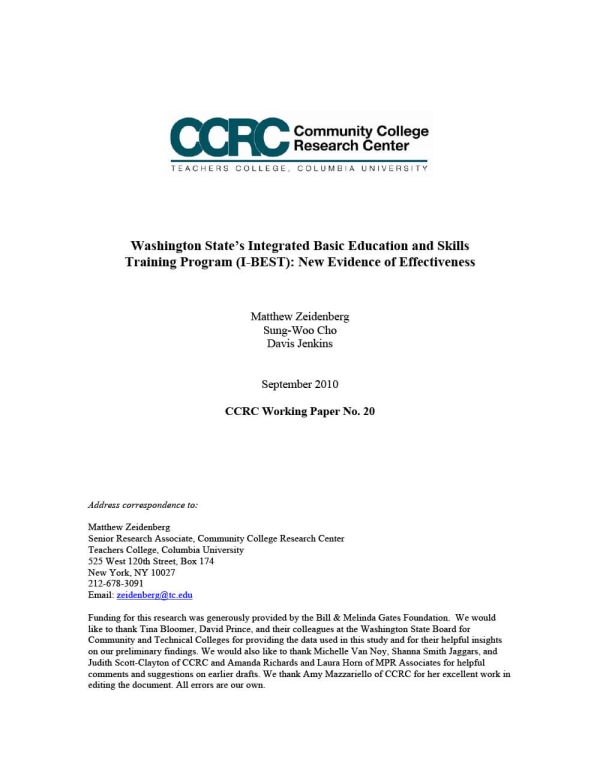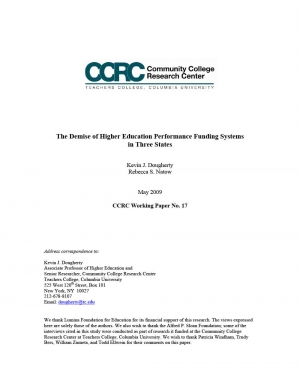Popular but Unstable: Explaining Why State Performance Funding Systems in the United States Often Do Not Persist
The experiences of three states that dropped performance funding (Missouri, Washington, and Florida) are contrasted with those of a fourth (Tennessee) that has retained it more than 30 years.
The Role of Community College Education in the Employment of Information Technology Workers in Washington State

Using data on students in Washington State who pursued IT coursework at community colleges and then entered the labor market, this paper presents findings on the employment outcomes of IT students by the type of preparation they completed, and on the types of employers that hired these students.
The Political Origins of State-Level Performance Funding for Higher Education: The Cases of Florida, Illinois, Missouri, South Carolina, Tennessee, and Washington

This report examines the origins of state performance funding in six states and concludes by drawing lessons for policymakers.
Washington State’s Integrated Basic Education and Skills Training Program (I-BEST): New Evidence of Effectiveness

CCRC examined educational and labor market outcomes of participants in I-BEST, which aims to help adult basic skills students succeed in postsecondary occupational education and training.
The Demise of Higher Education Performance Funding Systems in Three States

To investigate the unstable institutionalization of performance funding in higher education, this paper examines the cessation of performance funding programs in Illinois, Washington, and Florida.
